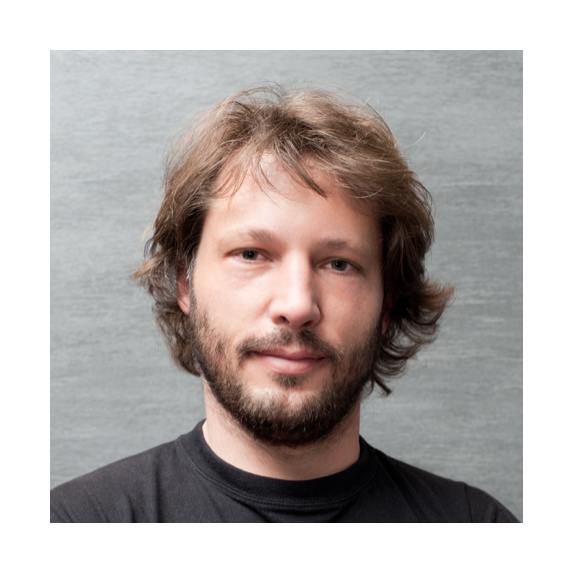Gert Döring chaired the RIPE Address Policy Working Group for close to two decades. Representing one of the first German ISPs, SpaceNet, he helped create RIPE’s process for adopting policies. In this interview with CENTR, Gert talks about how he thinks the RIPE community has to start adapting to the “bigger” Internet, and how, even as he departs from his chair role, he will continue to be present.
CENTR: You are stepping down as Chair of the RIPE Address Policy Working Group (WG) after 18 years. What was your RIPE trajectory?
Döring: My first RIPE meeting was in Berlin in 1996. I got into address policy because that was what I did at SpaceNet, haggling with customers about IP address requests. Our customers wanted more than we could give them. We needed paperwork but they did not want to give us any. So, I got involved in RIPE because I wanted to better understand how numbers were allocated. Hans Petter Holen [current RIPE NCC Managing Director] was then the chair of the Address Policy WG. He was looking for a co-chair to share the workload. Someone suggested I pick up the mantle, and voilà.
CENTR: There have not been many policy proposals recently. What is left to do? Did you step down because you thought that in the post IPv4 era there was nothing more to do?
Döring: We are certainly in the post-IPv4 era. But we still have AS numbers to hand out. We have IPv6 address space. All numbers fall under the remit of the Address Policy WG. Indeed, we have not had any policy proposals on v6 or AS numbers in a while. But the WG is still the focal point for people to discuss how things work. We get reports about registration requests at the RIPE NCC. Based on that we discuss if we need to reword or rewrite existing policies that need clarification. Sometimes the original intent of a policy is forgotten over time.
CENTR: Is that the reason for the planned review of all RIPE address policies?
Döring: Yes, it is something that the new chairs want to tackle. Some of the documents are 30 years old. The environment has changed, so what was clear 25 years ago might not be so clear today. That is also why it is good to have new chairs.
CENTR: Your email signature asks “did you enable something on IPv6 today?”. Why did it take about 30 years for IPv6 to get traction?
Döring: Good question. IPv6 is not hard, but it takes some planning. You need some free time to do it, and since all the engineers are constantly busy they hardly get to do anything that is not really urgent. The protocol is getting more traction now, since IPv4 addresses are becoming really expensive on the market.
CENTR: So prices for IPv4 resources are the kicker….
Döring: I am not sure I fully understand the dynamics of IPv6 deployment. Take the deployment in Germany. Deutsche Telekom (DTAG) got a lot of heat for being the incumbent, a big tanker ship that takes forever to do anything new and exciting. But DTAG and T-Mobile were among the first providers on the market to do a proper IPv6 rollout. Every one of their customers has IPv6, while the smaller actors that are supposed to be more agile have taken much longer. Part of the problem is that IPv6 does not get the marketing department excited, and users or end-consumers do not normally ask for it. You roll it out for strategic reasons.
Even DTAG took 8 or 10 years, but they are done now. In Italy no telecom provider has IPv6 yet, and content providers are also lagging behind. Not deploying IPv6 as a content provider shifts deployment costs to the access providers, since they then have to continue to provide IPv4 alongside IPv6.
Of course, with IPv4 network address translation, content providers might come around, because connectivity is just faster. But even while using a content delivery network like Akamai where you just need to click on the “I want to have IPv6” button you still need to be aware that there is such a button, and you have to be adventurous enough to click it.
CENTR: Cost, in the end can drive it….
Döring: (sighs) Yes. The Internet as a whole has changed from a place where you do things because you find them interesting into a place that is basically driven by revenue. Engineers still can influence what happens. But doing things for the common good when it costs you money is not fashionable. Now, if Google said your page rank would go up if you were IPv6 enabled, that might make a difference because search engine optimisers would run around and say, you have to do this. Unfortunately, Google is not doing that yet.
CENTR: Would you still put your money on an IPv4 broker?
Döring: I am bad at predicting the future, really. I was so wrong when i encountered IPv6 in 1997, I said, “Yeah, this is so cool, it will solve so many problems! We need to do this because in two years all customers will want it!” That was off by 20 years. So if I had a time machine maybe I would go back and buy a Class B, sell it for 1.3 or 1.5 million today and go into retirement.
CENTR: What about the hoarding of IPv6 numbers? The RIPE NCC reported about that at RIPE82…
Döring: I think we need a better understanding of what is happening there before deciding what to do. The RIPE region has the most relaxed IPv6 policy of all regions. In other regions you can get a /32 block [a block is a given set of numbers, in this case IPv6 addresses]. In ARIN (RIPE’s counterpart in North-America), the size of the address block determines the annual fee, so people go for smaller blocks, usually /36. In RIPE-land you get a /29 with no questions asked. That is a large number of numbers, as it were. For really huge providers, if you show your 100 or more million customer list to the RIPE NCC, you can get an even bigger block. It requires a bit more effort, but you can have it. I can see networks that want to have two or three /29 blocks. Huge companies with different teams responsible for different aspects of their network being unable to have a common address plan. But I have no idea why somebody would have 80 or 90 /29 blocks as was reported. It does not happen that often.
CENTR: Is this something the Address Policy WG might be required to prepare policy for?
Döring: Eventually. But we have to judge the impact first. If somebody really has 80 /29s, that sounds like a huge amount of v6 space. However, summing this up would give roughly the equivalent of a /22 block. Comparing a /22 block to the whole IPv6 space of numbers, the whole space would contain more than four million times that amount of numbers.
Even if we have a handful of entities that feel they have to grab 80 /29 blocks, that will not make us run out of IPv6 any time soon. Before developing a policy, we should ask why they are doing this. Perhaps there is something that can enable them to do their business without grabbing that many blocks. I am not in panic mode over this.
CENTR: If you compare RIPE then and now what is your recommendation going forward?
Döring: When I started in 1996 the number of active participants was around 50. A RIPE meeting was a one day event in Berlin, free of charge, it was kind of a family affair. The last physical RIPE meeting had over 600 participants. The number of paying RIPE members is over 20,000 now. The Internet has become a commodity, and self-regulation has to be reworked. It is not sufficient to have a handful of people speak up in a room and decide on the Internet basically. This does not reflect grassroot community self-regulation. Being inclusive, being transparent, getting more people in to not only pay annual fees but participate, that is the challenge. At the same time if you have a policy proposal on a niche aspect of IPv6 and you get 10,000 comments on it, the process will explode. So we need balance. Everybody should have access and be able to easily participate. At the same time we have to educate people not to flood the process with potentially unhelpful comments.
CENTR: Law enforcement, regulatory agencies, politicians have become more involved, some even questioning the self-governance model. What do you say to them, just “leave us alone”?
Döring: No. It might more be “talk to us”. Leaving us alone does not work. Internet citizens might need their assistance to deal with real world issues. Deciding behind our back is not going to produce good results either. So, talk to us and also, listen. We need regulators to be involved, because there are large parts of the Internet that fail at self-regulation. Address policy is an aspect that actually worked very well, because it was always based on really compromising conflicting interests. Everybody wanted to have more IPv4 space in the beginning. But people came to accept that it is inconvenient, yes, but it is inconvenient for everybody and it makes sense. That is why people played by the rules. RIPE has no black helicopters. It was a cooperative, bottom-up compromise and I think that will continue to be the case going forward.
CENTR: Gert, thank you very much for sharing your views.
This article was published on the CENTR blog on 4 June 2021.


Comments 0
The comments section is closed for articles published more than a year ago. If you'd like to inform us of any issues, please contact us.